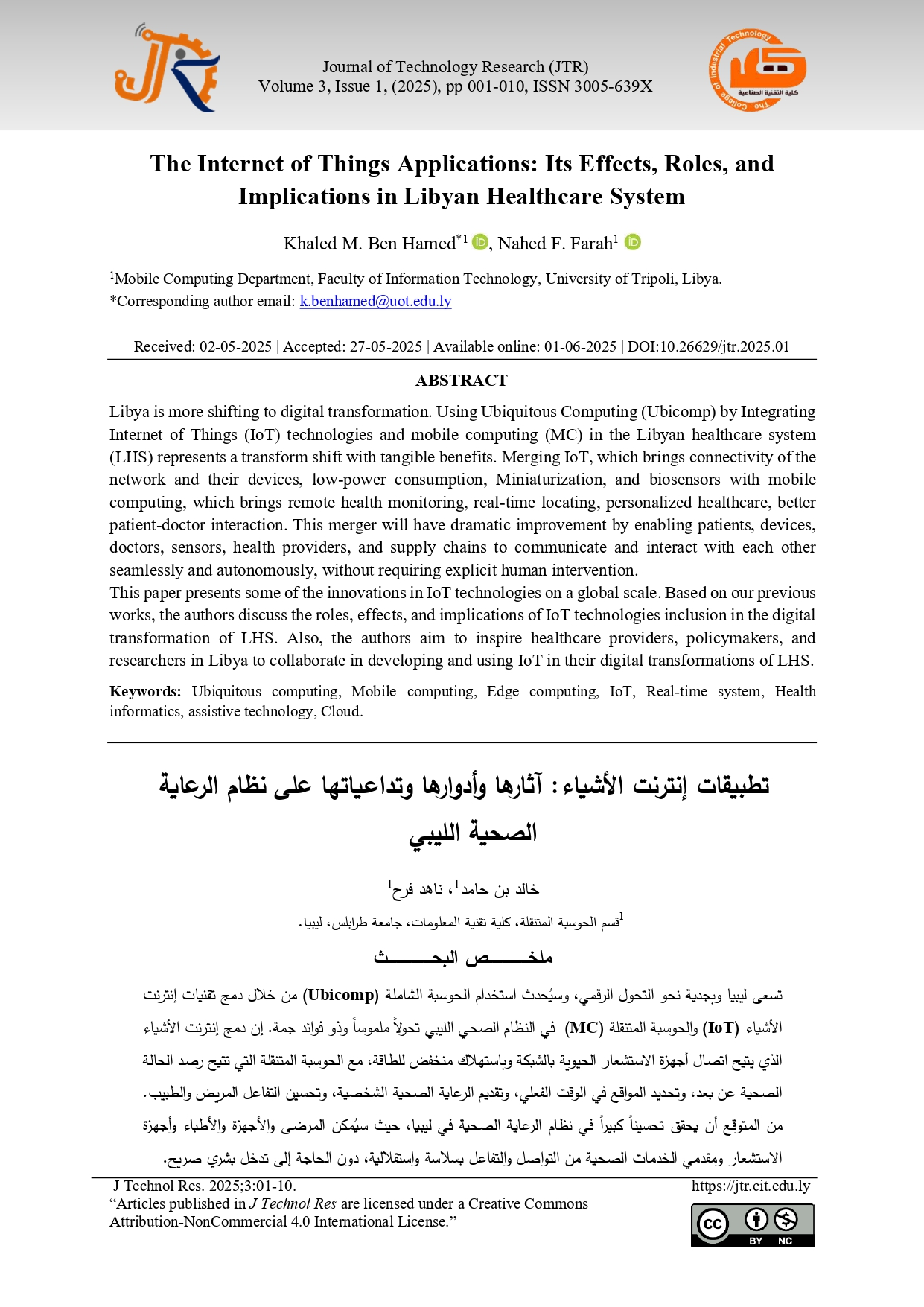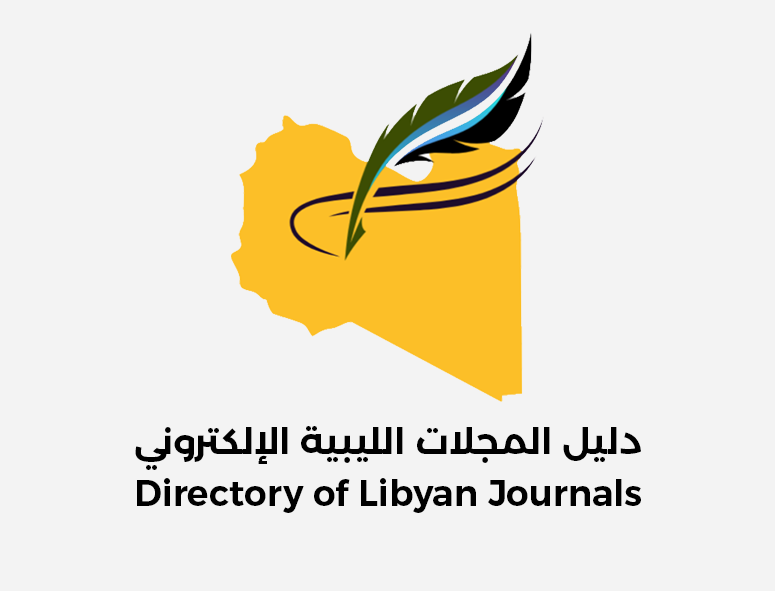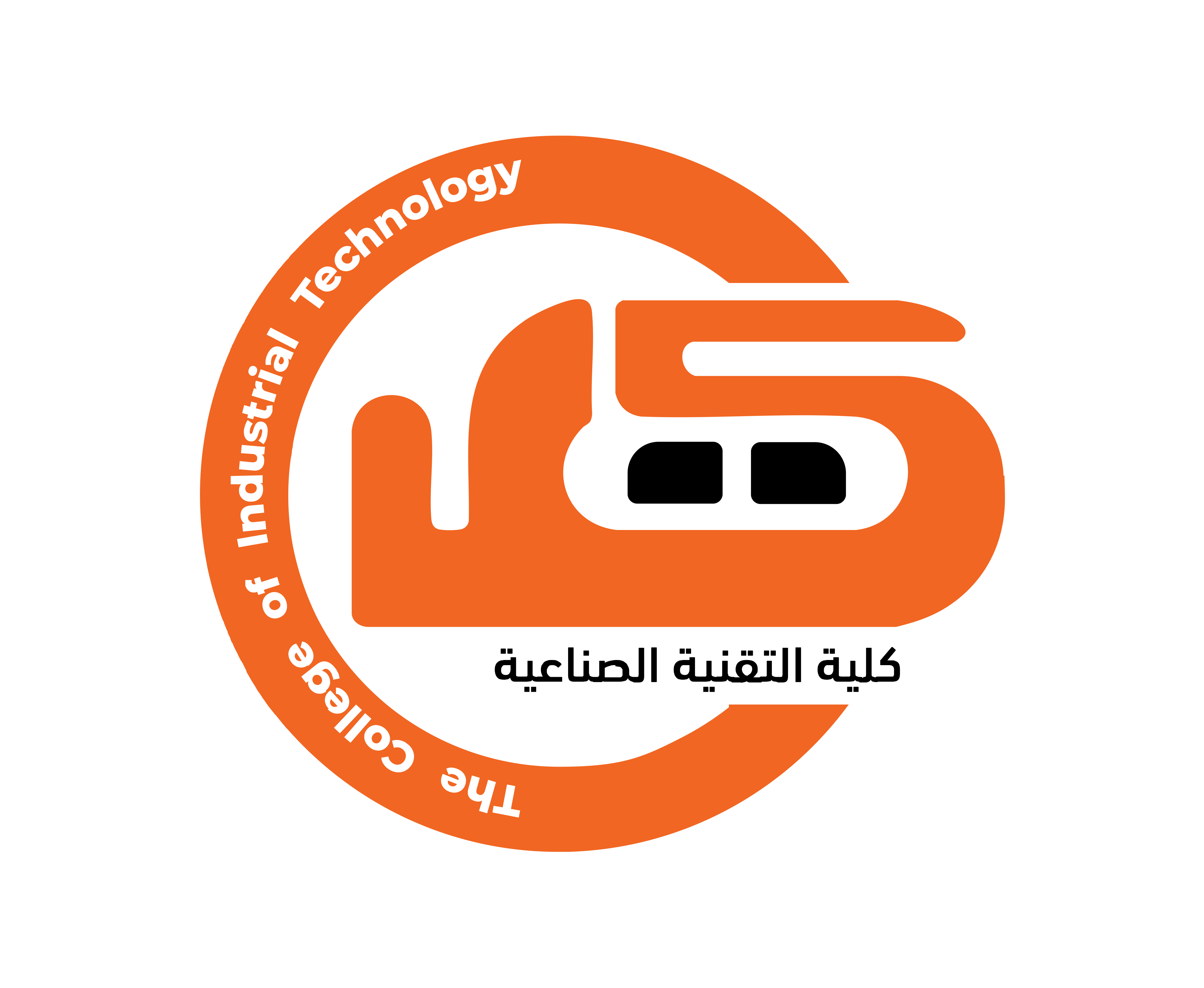The Internet of Things Applications: Its Effects, Roles, and Implications in Libyan Healthcare System
DOI:
https://doi.org/10.26629/jtr.2025.01Keywords:
Ubiquitous computing, Mobile computing, Edge computing, IoT, Real-time system, Health informatics, assistive technology, CloudAbstract
Libya is more shifting to digital transformation. Using Ubiquitous Computing (Ubicomp) by Integrating Internet of Things (IoT) technologies and mobile computing (MC) in the Libyan healthcare system (LHS) represents a transform shift with tangible benefits. Merging IoT, which brings connectivity of the network and their devices, low-power consumption, Miniaturization, and biosensors with mobile computing, which brings remote health monitoring, real-time locating, personalized healthcare, better patient-doctor interaction. This merger will have dramatic improvement by enabling patients, devices, doctors, sensors, health providers, and supply chains to communicate and interact with each other seamlessly and autonomously, without requiring explicit human intervention.
This paper presents some of the innovations in IoT technologies on a global scale. Based on our previous works, the authors discuss the roles, effects, and implications of IoT technologies inclusion in the digital transformation of LHS. Also, the authors aim to inspire healthcare providers, policymakers, and researchers in Libya to collaborate in developing and using IoT in their digital transformations of LHS.
Downloads

Downloads
Published
Issue
Section
License
Copyright (c) 2025 Journal of Technology Research

This work is licensed under a Creative Commons Attribution-NonCommercial 4.0 International License.















